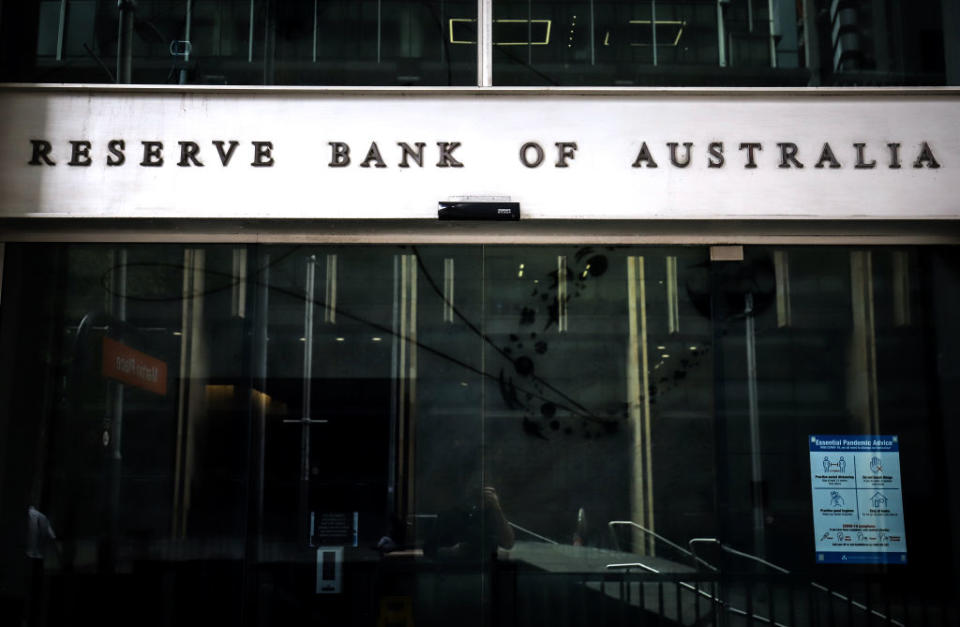RBA's next move will be 'boring': Economist

The RBA Board meets this week. It is likely to be one of the least anticipated meetings on record, with no one expecting any change in rates and most analysts are likely to show only passing interest in what the RBA has to say.
As certain as night follows day, the RBA will maintain the target for the official cash rate and 3 year Australian government bonds at 0.25 per cent.
The RBA will say the economy is weak, but not quite as weak as it was earlier forecasting, that the labour market will get worse before it gets better, that inflation will remain below the lower bound of its inflation target for some considerable time and that official interest rates will remain at present settings until inflation is back to the target and the labour market is approaching full employment.
Also read: 'Staggering': The 2020 Covid-19 depression explained
Also read: The 2020 Covid-19 Depression has hit the jobs market
Also read: House prices continue to rise – predictions of a 35% fall are in the bin
Unfortunately, the RBA has signalled it is unlikely to provide further monetary policy stimulus – cutting interest rate to zero or below or expanding its bond purchases are not on its agenda.
This means the pressure is on the Morrison government to use its fiscal policy levers to help support the economy for the short to medium term.
While conditions in the economy are not quite as bad as earlier feared, a fully fledged recovery remains a long way away.
Housing: How deep with the downturn be?
House prices are now falling, which if sustained will threaten to hurt household wealth, bank balance sheets, consumer spending and the economy more generally.
While the house price weakness is so far moderate, no doubt contained by the banks generous mortgage holidays and an absence of forced selling, Australia-wide prices are down around 1.5 per cent from their mid-April peak.
Melbourne is leading the decline with house prices down around 2.6 per cent from their recent peak and with significant tracts of Melbourne re-entering lock down in the wake of the spread of COVID-19, further falls are assured.
A problem for the final months of 2020 across Australia will be when the so-called mortgage holiday ends. From October, mortgage holders who have been granted a reprieve from making their payments in the period since April, will have to start making their payments.
This is hugely problematic and something that will likely cause the RBA grief and potentially a policy refocus.
While repayments have been postponed for many mortgage holders, the debt has been accumulating each month. Mortgage holders granted the repayment deferral will have to confront a jump in their mortgage debt.
If, as seems certain, unemployment and underemployment remains elevated through to the end of 2020 and probably beyond, many borrowers will have trouble restarting their repayments simply because they don’t have a job.
Making matters worse is the absence of growth in underlying demand from population increases. Net immigration has all but stooped with the international border closed, while foreign students are largely absent for the same reason.
With this lack of growth in structural demand looking to get worse before it gets better, the risks for house prices and the economy more generally remain problematic, regardless of what the RBA says this week.
Low mortgage interest rates will help to partially cushion the blow for housing, but that is more for those lucky to have retained employment during the current economic slump than for the unemployed and underemployed.
Even with low interest rates, if you don’t have a job it is difficult if not impossible to service a mortgage.
As things stand, it could well be the case that the depths of the economic downturn will not be a bad as the RBA earlier feared. The concern is that the recovery may be more sluggish than it currently is assuming.
Suffice to say, the economy is still in trouble and there are a myriad of risks ahead.
While the RBA meeting this week may well be a non-event, all the risks suggest it will have to revisit its policy framework in the months ahead as it works support the economy, hit by what could be sharp falls in house prices.
Make your money work with Yahoo Finance’s daily newsletter. Sign up here and stay on top of the latest money, property and economy news.
Follow Yahoo Finance Australia on Facebook, Twitter, Instagram and LinkedIn.

 Yahoo Finance
Yahoo Finance 